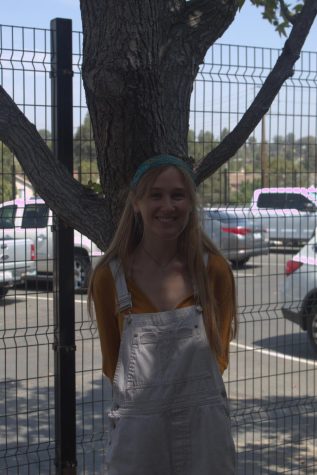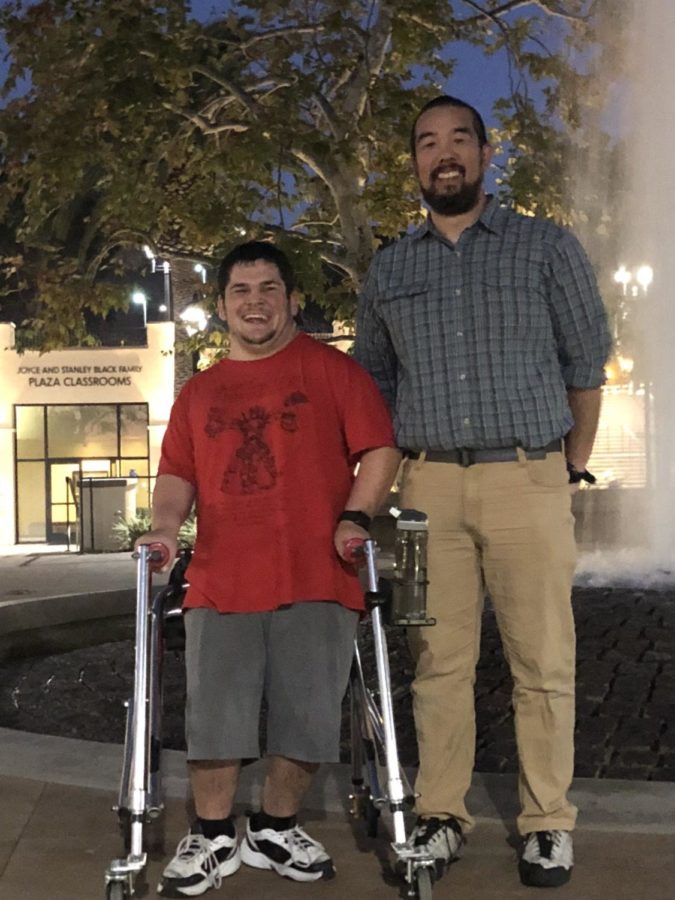Pepperdine University’s Course on Motor Learning and Development
Stinger Staff Writer, Lucas Gnagy (left) and physical therapist Galen Okazaki (right).
Editor’s note: This story was written by Lucas Gnagy, a Stinger staff member who attended the Motor Learning and Development Sports Medicine Course last month. Staff Writer Ella Menin assisted him in writing the story.
This year, Pepperdine University hosted their annual Motor Learning and Development Sports Medicine course on Monday, Nov. 5.
The course teaches about the principles of motor skill acquisition and the effects of motor skills across the human lifespan, and this session’s guest speaker was my physical therapist Galen Okazaki, so he brought me to participate in his presentation.
I was a part of multiple guest speaker sessions, which were all about one to two hours. At the sessions, I demonstrated how I walk, how my waist rotates, and how I touch my toes. During my time participating in this course, I met a handful of the enrolled students. Many of them are planning on entering career fields that involve sports and other forms of physical therapy. Having me demonstrate my daily challenges helps students learn and stay encouraged to study for a career in the field.
“It was very interesting talking to your physical therapist and it was fun to see the people I will get to work with,” said Paige, a student at Pepperdine University. “Your attitude makes me very excited to work in this field.”
Many students share the same opinions as Paige and Christine Tinberg, the Pepperdine University professor who teaches the course. Tinberg believes that while books and theories contain widely discussed, important topics, real-life examples are a necessity that cannot be substituted by reading.
Tinberg agreed with her students in terms of my presence in assisting the learning process. “It’s really important to interact and learn from someone like you or Galen — that’s real life,” Tinberg said, “My students could ace any test, but actually putting it all together in real life is very different.”
Okazaki prefers working with younger people because he believes he can make a greater impact on their lives and inspire them to work in the physical therapy field. He originally started speaking at Pepperdine University in order to give back in a way that was more meaningful than giving money. Okazaki decided to bring me along with him to his guest lectures to help students better understand the learning material.
“There is a huge difference between what you can read and understand from a book versus seeing something in real life,” Okazaki said. “Real life situations stick in memories and provide a much more full learning experience.”

Hey, I'm Ella! I'm a senior at Cam High. When I'm not writing (usually poetry), I'm most likely baking or cooking with homegrown ingredients from my garden....

















































































![Senior Ditch Day... Relaxation or Truancy? [Video]](https://achsstinger.com/wp-content/uploads/2017/10/IMG_7119-900x599.jpg)
![Heavy Rain Hits Cam High [video]](https://achsstinger.com/wp-content/uploads/2017/02/maxresdefault-900x506.jpg)



